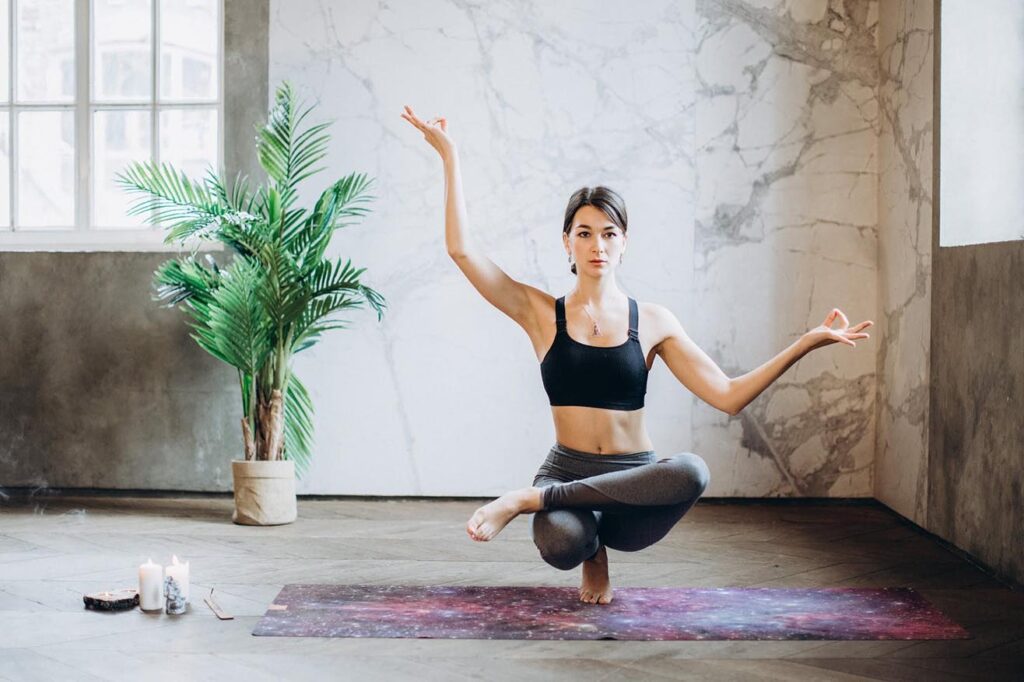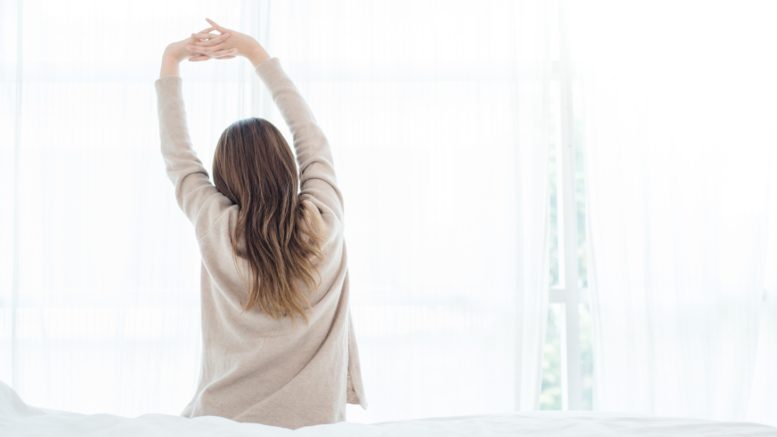Falling asleep is such a rudimentary and biological process is now slowly turning into a hassle. According to a report by the American Psychiatric Association (APA), about 1/3 rd of all adult’s report insomnia symptoms, and furthermore, between 6-10% of all adults have severe symptoms, which is classified as insomnia.
However, before we dive into this topic, we must understand the medical definition of insomnia, as it will help you know if you fall under this category.
Insomnia has several definitions. Medically, it is defined as the presence of polysomnographic evidence of disturbed sleep.
The presence of long sleep latency, frequent awakening during sleep in the night, and/or prolonged periods of wakefulness during the sleep cycles would be taken as evidence for insomnia. Hence, insomnia is a symptom as well as a sign.
However, to make it simpler, let us use the below diagnostic criterion to term insomnia:
- Difficulty falling asleep, staying asleep (The normal latent period to fall asleep is around 10-20 min)
- Difficulty in sleeping despite have opportunity and circumstance.
- Difficulty in sleeping is associated with day-time tiredness and lethargy.
- It is experienced at least 3 times a week and is persistent at least a month.

Causes of Insomnia:
There are several causes linked to insomnia. However, this tends to depend on the type of sleeplessness you are experiencing.
Short-term insomnia (Acute insomnia) where you may be experiencing the symptoms at least for a month. This type of insomnia could be caused by:
- Stress
- Trauma and upsetting events
- Changes in sleeping habits such as a new home or a hotel.
- Physical pain
- Certain medications such as Modafinil and amphetamines
Chronic insomnia is defined as when you are suffering from these symptoms for at least 3 months. Chronic insomnia could be caused by:
- Arthritis, scoliosis, and any other medical conditions
- Anxiety, depression, and any other psychological issues
- Drug abuse
- Diabetes
Risk Factors for Insomnia:
Insomnia is more likely to affect women than men and could occur at any age.
According to a study by the National Heart, Lung, and Blood Institute (NHLBI)
Trusted Source, you may be more likely to suffer from sleeplessness and insomnia if you have any of the risk factors below:
- Stress
- Mental health disorders such as depression or anxiety
- Traveling through different time zones
- Sedentary lifestyle
- Night shifts
The report also states that few medical conditions such as obesity or cardiac problems could also lead to insomnia.
Signs and Symptoms:
Most people who have insomnia usually tend to report at least one of these symptoms:
- Waking up too early in the morning
- Unable to fall or stay asleep.
These symptoms are correlated and could lead to other symptoms such as:
- Lethargy
- Fatigue and irritability
- Mood fluctuation
- Wavering concentration in the day
How to Treat Insomnia?
There are several treatments that include pharmaceutical and non-pharmaceutical treatments for sleeplessness/insomnia. However, we will be looking at natural and drug-free treatments, as using drugs may cause long-term damage to the body and lead to brain-related diseases.
Sleep Hygiene:
Most sleep therapists and psychologists recommend sleep hygiene. This primarily consists of educating the person about lifestyle modifications such as limiting day-time naps, avoiding late-night dinners, consumption of alcohol/caffeine and nicotine.
It involves encouraging them to adopt an exercise regime, diet and maintain regular sleep and wake cycles. However, it should be noted that sleep hygiene is only useful with patients suffering from acute insomnia.

| Did you know? Sleep hygiene is accessed and evaluated using the sleep hygiene index and practice scales. |
Yoga:
According to a recent report, it was found that yoga had a tremendously positive effect on sleep quality. Yoga tends to help with stress, to boost mental focus and physical functioning.
It is strongly recommended that you choose a style that focuses more on moving meditation and breathwork rather than difficult positions. As slow and controlled movements allow you to stay in the moment and focus.
Doctors and trainers recommend that you do at least 20 minutes of daily self-practice. Ideally, you could do this before going to bed to help you feel relaxed. It should be noted that if a particular pose isn’t right for you, then don’t try to do it. Try to keep yourself restricted to postures that you could do easily.
Melatonin:
This is a hormone produced naturally inside your body. It functions by signaling your brain to sleep. This hormone also helps in maintaining the natural circadian rhythm of the body.
Usually, hormone production depends on the time of the day; the production rises in the evening and tends to fall by morning.
Due to this reason, melatonin is a rather popular sleeping aid. It is mostly used in instances where the melatonin cycle is disrupted, such as with jet lag.
Several studies reported that melatonin sleep Gummies help in improving sleep quality and duration. Moreover, this hormone helps reducing the sleep latency in insomniacs; that is, it helps them fall asleep faster and increases the total amount of sleep time.
It is recommended that you use melatonin as it is safe for adults when used for short and long periods.
The dosage of melatonin could be anywhere between 1-10 mg, which you need to take two hours before going to sleep. Use the lowest effective dose possible after consultation with your doctor, as higher doses are known to have a few side effects.
Magnesium Supplements:
Using supplements is one of the adjuvant ways that you could use to help relax and relieve stress. Magnesium is a naturally occurring mineral and is found in traces in the body. This mineral is known to enable healthy sleep patterns.
In a study conducted, participants were given 500 milligrams of magnesium daily for 2 months. During this time, it was found that the participants experienced a lot fewer symptoms of insomnia and it helped them drastically improve their sleep patterns.
The general dosage for men is 400 mg daily, and women may take 300 mg daily. It is recommended that you divide your dose into morning and evening doses.
Additionally, if you could get your hands on magnesium flakes, you could essentially add that to your evening bath.
However, there are a few side effects to this, such as stomach ache and intestinal issues. Hence, it is strongly recommended that you start with a low dose and gradually increase it. Also, doctors recommend taking these supplements with your dinner.
Do note that magnesium supplements shouldn’t be taken daily. Take a break every few days, bi-weekly.

Exercise:
In a 2015 study, it was found that participants who had exercised at least 150 minutes per week for six months reported significantly fewer symptoms of insomnia. Furthermore, they also showed reduced symptoms of depression and anxiety.
It is a well-known fact that exercise is a holistic health booster and could also enhance your mood and provide you more energy and promote better sleep.
Psychiatrists and doctors recommend that you should engage in moderate exercises for at least 20 minutes per day to reap the benefits of good sleep. Additionally, you may also add in strength training and aerobics a few times a week. You can also start your daily workout in less than 30 minutes with the help of a ski machine. This will help you sleep better and deeper than if you just did sit-ups or ran on the treadmill.
Do note that you need to consider your body and exercise accordingly. Physical injury is a possibility, and avoiding it is easy.
Essential Oils:
Essential oils are strong aromatic liquids that are made from plants, flowers, or trees. There are various essentials that you could use to enable you to sleep easier. These oils tend to have a relaxing effect on the body.
You could treat several conditions using these oils, and they are generally inhaled or massaged into the skin. This is referred to as aromatherapy.
Here are a few essential oils that you could use to help you sleep:
- Lavender
- Cedarwood
- Sandalwood
- Neroli or Bitter orange
You could directly inhale the oil or add it to water and bathe with it; moreover, you could add it into the dehumidifier and leave it in your bedroom,
In 2015, a review of 12 studies reported that aromatherapy was extremely beneficial in promoting. Another study said that lavender essential oil was very useful in promoting and in sustaining sleep. Furthermore, essential oils bear no side-effects and are safe to use.
Mindful Meditation:
This is a form of meditation that comprises slow, steady breathing while sitting quietly. As you breathe in and out, you observe and perceive your breath, body, thoughts, feelings, and sensations.
Mindfulness Meditation has several health benefits that promote a good lifestyle and help in enabling good sleep. It is also effective in reducing stress, improves concentration, and acts as an immunity booster.
In a study, it was found that meditation improved insomnia and helped improve the participants’ sleep patterns. These participants had weekly meditation classes, a daylong retreat, and practiced at home.
Meditation is a key tool that you could use as often as you like. Keep it a point that you would meditate at least 15 minutes in the morning and evening to keep your stress at bay. Also, you may join a group or try online guided meditation.
Key Takeaway
In several cases, making positive changes and adopting a healthier lifestyle did help in controlling the symptoms of insomnia. Try to make sure that you use supplements adequately and choose a healthier lifestyle by adopting meditation and exercises.
Also, you may find it beneficial if you plan on what to do, in case you aren’t able to sleep. Perhaps, you could choose to read a book, relax in another room, and even divert your mental faculties toward something more active and productive. You figure out what works for you. No more sleepless nights, unless you want to.
